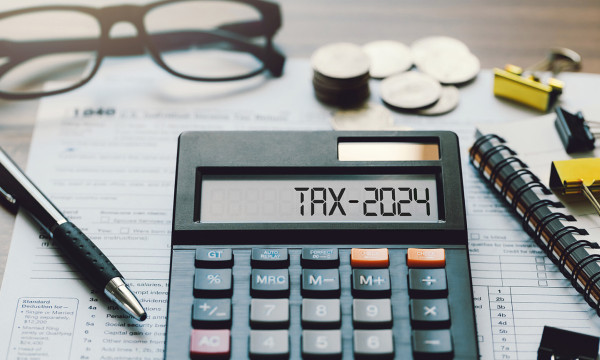How to protect yourself from tax return identity theft

Are you looking forward to a tax refund? Maybe you’re planning a vacation, or maybe there’s a home improvement project in your future. If that’s the case for you, it’s important to be vigilant with your personal information and tax practices to make sure your tax refund ends up safely in your hands — rather than with a stranger who stole your identity. Fortunately, there are lots of steps you can take to minimize your risk of falling victim to tax return identity theft.
Protect your identity. Keeping your information safe starts with implementing some important best practices, including:
- Keep all personal identification documents in a safe place
- Shred documents containing your personal information that you no longer need
- Before you share personal information with someone, ask yourself whether they really need it and why
- Only give out your Social Security number when it is required
- Check your credit report for accuracy every 12 months
- Keep your computer security software updated, use a firewall, and install anti-spam and anti-virus software
- Stay on top of the latest phone and online phishing scams, and remember that the IRS never requests personal or financial information via email, nor will they call to tell you that you owe taxes
- Consider a lock on your mailbox to make sure your mail is secure
Don’t wait to file. One of the surest safeguards against identity theft is filing your tax return as early as possible. Once the IRS processes a return with your Social Security number, it rejects any duplicates. A thief won’t be able to file a fraudulent tax return if you’ve already filed first!
Vet your tax preparer. Filing taxes can be complicated, so it may be wise to work with an experienced tax preparation service to ensure all your ducks are in a row. If you choose to hire someone, just be sure you’re working with a legitimate tax preparation service. Consider verifying their credentials and check on any potential disciplinary actions with the IRS or local Better Business Bureau.
Speak up about suspect behavior. Report all unsolicited email claiming to be from the IRS or an IRS-related function to phishing@irs.gov. And if you’ve experienced any monetary losses due to an IRS-related incident, please report it to the Treasury Inspector General Administration (TIGTA) and the Federal Trade Commission.
Ultimately, anything you can do to keep your personal information private — especially around tax time — is worth it in the long run, and you’ll always want to consider consulting with a tax professional before making any big decisions. With some diligent effort, though, your hard-earned tax return should arrive safely, meaning you can focus on the fun stuff. Have questions? We’re here to help! Contact our Customer Support Team online or by calling 800.297.2837.
Want more tax education? Check out our Tax Resource Page.
Learning Center articles, guides, blogs, podcasts, and videos are for informational purposes only and are not an advertisement for a product or service. The accuracy and completeness is not guaranteed and does not constitute legal or tax advice. Please consult with your own tax, legal, and financial advisors.




